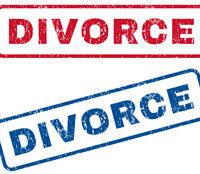What You Need to Know About Social Media and Florida Divorce

For many people, social media has become an increasingly important part of their life. Most Americans are now on at least one social media network. According to data provided by the Pew Research Center, nearly 70 percent of people actively use social media. While using social media is often a causal experience, your posts can become a serious issue in a divorce case. Here, our Orlando divorce lawyers discuss how your social media posts affect your divorce proceedings.
Four Ways Social Media Posts Can Affect a Florida Divorce
- Social Media Posts are Admissible Evidence
Any posts that you make on social media have the potential to be admitted into actual court proceedings. This comes as a great surprise to many people. Be please be aware that this can happen even if your posts and account are set to private. Indeed, in some cases, judges allow ‘discovery’ into a person’s social media activity. Discovery is the legal process by which evidence is obtained. The bottom line here is simple: When you are in the midst of an active family law dispute, you should refrain from posting on social media.
- Social Media Posts Can Violate a Protective Order
A protective order is a binding court order that instructs a person to stop ‘abusing or harassing’ another person. Protective orders can be crafted to address the specific circumstances of an individual case. Contacting your spouse via social media can sometimes qualify as violating a protective order. Social media contact should be view the same way that you would view making a phone call. In addition, posting about your former spouse can potentially be construed as harassment. If there is a protective order in your case, do not address your current or former partner on social media in any form.
- Posts and Pictures Can Provide Evidence of Financial Standing
Property distribution is generally one of the most contentious issues in a Florida divorce case. Information obtained on social media accounts can be used as evidence to resolve a financial dispute. If you are in a dispute over assets, whether property distribution, debt distribution or spousal support, you should not post anything about your finances online. You need to be extremely careful in these cases. This is because seemingly innocuous posts can be misconstrued. For example, if you post about how you “enjoyed a nice dinner out on the town”, the opposing side may try to use that as evidence to reduce your divorce settlement or alimony award.
- Social Media Impacts Child Custody Disputes
Social media posts can also have a tremendous impact on child custody disputes. Do not vent about your former partner or children on social media. Once again, these posts may reflect poorly on you when they are taken out of social media context and put into the courtroom. The last thing you want is for a mindless social media post to adversely affect your ability to keep child custody.
Get Legal Help Now
To speak to an experienced Orlando divorce attorney, please call the Law Offices of Steve W. Marsee, P.A. today at 407-521-7171. We proudly represent individuals and families throughout Central Florida, including in Seminole County, Orange County, Lake County, and Osceola County.
Resource:
pewinternet.org/fact-sheet/social-media/
